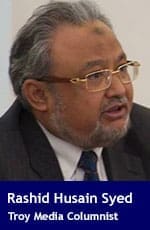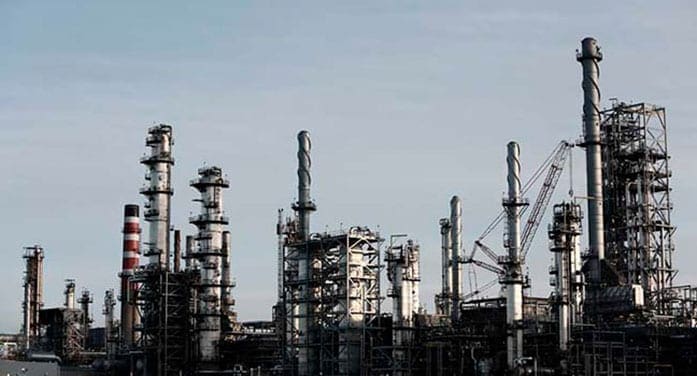 The grand old wise man of the energy world has slipped into history. With the passing away of Sheikh Ahmed Zaki Yamani, the charismatic Saudi oil minister from 1962 to 1986, an era has come to an end.
The grand old wise man of the energy world has slipped into history. With the passing away of Sheikh Ahmed Zaki Yamani, the charismatic Saudi oil minister from 1962 to 1986, an era has come to an end.
With his calm and cool demeanour, intellectual depth, sharp mind and the capacity to stand up to pressures, he personified the Organization of Petroleum Exporting Countries (OPEC) during the tumultuous days of 1973 oil embargo.
The embargo resulted in a seismic shift in the global energy order. Power slipped out of the hands of the global oil majors, the Seven Sisters, while Saudi Arabia emerged as the new king of the oil world.
Within a decade, Saudi Arabia, a mid-ranking producer, graduated to the world’s largest crude oil producer and the sole global swing producer.
The rapid rise in oil prices was an enormous windfall for OPEC members. Global oil prices quadrupled to $12 a barrel from $3. It was a camel-to-Cadillac story.
And all this happened under the watch of Yamani. He masterminded the 1973 embargo. Looking back at the crisis, Yamani told CNN in 2010 that “the Arab oil (embargo) was meant, and I was behind it, not to hurt the (global) economy, (but) just to attract the international public opinion that (there) is a problem between the Palestinians and the Israelis.”
Yet the embargo had long-term implications. The move plunged Western economies into recession. Long queues at the gas stations became common. Lowering dependence on Middle East oil supplies became a major imperative. Exploring and promoting Alaska and North Sea reserves were a direct consequence of the OPEC oil embargo. Emphasis on improving the efficiency of big American cars, the gas guzzlers, also became an objective.
To counter the rise of OPEC, the likes of then-U.S. Secretary of State Henry Kissinger conceived the International Energy Agency, the energy watchdog of the Organization for Economic Co-operation and Development (OECD). To sustain the global industrial economies in times of crisis, the policy of objective of leading industrial powers was to increase the oil storage capacity through the Strategic Petroleum Reserve.
As a result, the OPEC share of the global energy markets dwindled from almost 80 percent to somewhere around 30 percent now.
Saudi Arabia and Yamani were now under the global spotlight.
In 1975, Yamani was standing next to his mentor, King Faisal of Saudi Arabia, when a disgruntled royal shot dead the king dead. Yamani survived – unscathed physically but not emotionally.
It was a traumatic year for the then-young Yamani. On Dec. 21, 1975, he and other OPEC oil ministers were taken hostage in Vienna by a group led by Carlos the Jackal, the most notorious international terrorist of the era.
The terrorists got the Austrian government to provide a plane to take them and several of the ministers to Algiers. Carlos planned to kill Yamani and Iranian Oil Minister Jamshid Amuzegar, but ultimately agreed to release them after Algerian mediation.
After the death of Faisal, Yamani didn’t get along well with the new king. Ultimately, after an uneasy 11-year relationship, King Fahd fired Yamani from his pivotal position as oil minister in 1986.
But this didn’t mean Yamani was done with the energy world. In 1990 – in association with others like the former deputy Iraq oil minister and deputy OPEC secretary general Dr. Fadhil Chalabi – established a global energy consultancy, the Centre for Global Energy Studies (CGES).
Finally, after 24 years of operation, and with the advancing ages of Yamani and Chalabi, the CGES shop was shut down in 2014.
Yamani had a brilliant mind and a clear understanding of the oil world. For decades he insisted that “coal didn’t end, the coal era came to an end.” Many felt he meant that oil reserves wouldn’t end but oil demand would diminish. In the current circumstances, that appears to be prophetic.
Rest in peace, Sheikh Yamani. The energy world will miss you.
Toronto-based Rashid Husain Syed is a respected energy and political analyst. The Middle East is his area of focus. As well as writing for major local and global newspapers, Rashid is also a regular speaker at major international conferences. He has been asked to provide his perspective on global energy issues by both the Department of Energy in Washington and the International Energy Agency in Paris.
For interview requests, click here. You must be a Troy Media Marketplace media subscriber to access our Sourcebook.
The views, opinions and positions expressed by columnists and contributors are the author’s alone. They do not inherently or expressly reflect the views, opinions and/or positions of our publication.
COMMUNITY NEWS OUTLET ACTION PLAN!
WEBSITE HOSTING AND ALL TROY MEDIA EDITORIAL CONTENT POSTED TO YOUR SITE DAILY FOR ONLY $129.95 PER MONTH.
Limited time offer: Get your first 2 months FREE! Click here for details


